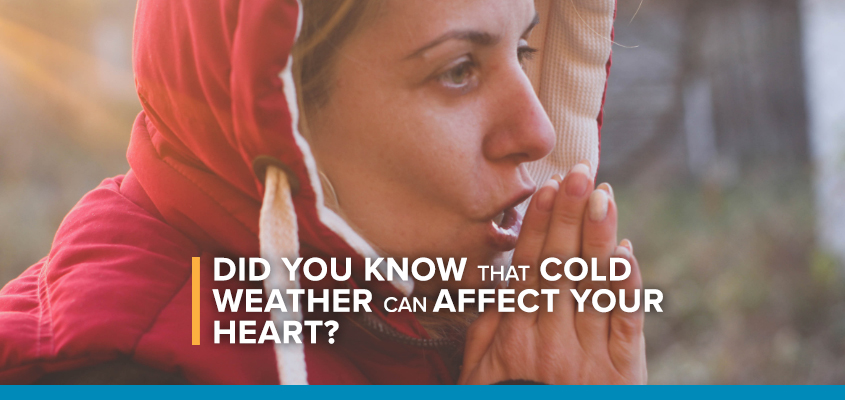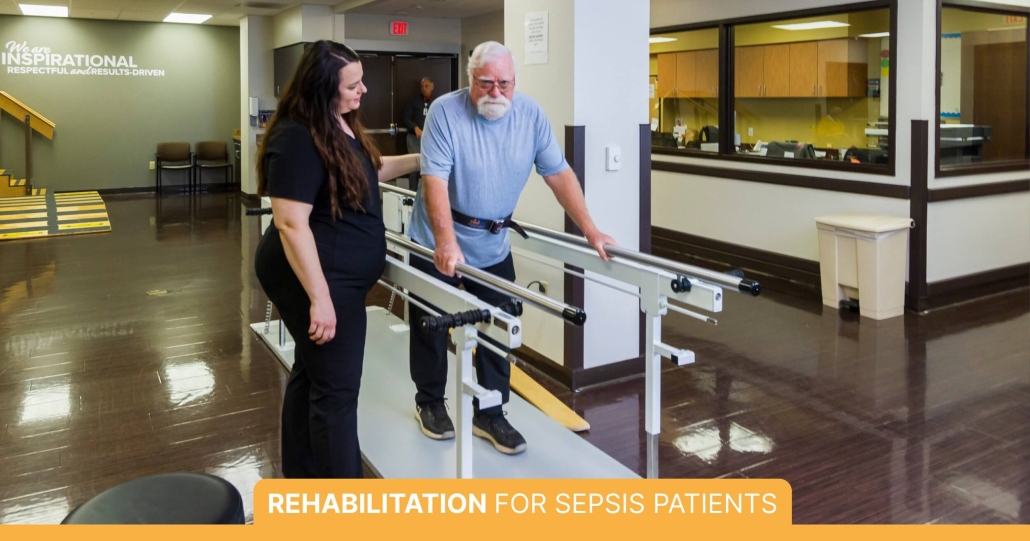
Did you know that cold weather can affect your heart?
When it gets cold, blood vessels contract or narrow to prevent heat loss to the skin. Called vasoconstriction, this helps the body maintain a normal, internal core temperature. It also, however, means your heart may need to work harder to pump and circulate blood through the body.
Vasoconstriction can raise heart rate and blood pressure, increasing the risk of heart attack and stroke. It also may worsen angina (chest pain or discomfort) in individuals with coronary heart disease.
Also of concern with colder weather is hypothermia. Hypothermia is when your body loses heat faster than it can produce it and the body’s temperature falls below 35 degrees Celsius. As this happens, it prevents the heart, nervous system, and other organs from functioning as they should. If it’s not treated, it can lead to heart damage or failure.
So how can you protect yourself and your heart in colder weather?
- Dress appropriately and wear layers.
- Remove wet clothing quickly and replace with dry clothing.
- Take breaks and go inside frequently.
- Avoid alcohol because it may cause you to think you’re warmer than you actually are.
- Be careful of strenuous exercise like shoveling sidewalks or driveways.
Recent Blogs/News
We invite you to view our recent blogs and news. For your convenience, our latest Post is shown below!
 https://clearskyhealth.com/riorancho/wp-content/uploads/sites/2/2025/08/clearsky-blog-rehab-for-sepsis-patients-2.jpg
1313
2500
elv2
https://clearskyhealth.com/riorancho/wp-content/uploads/sites/2/2020/09/Logo.png
elv22025-08-13 05:39:302025-08-15 15:50:00Rehabilitation for Sepsis Patients
https://clearskyhealth.com/riorancho/wp-content/uploads/sites/2/2025/08/clearsky-blog-rehab-for-sepsis-patients-2.jpg
1313
2500
elv2
https://clearskyhealth.com/riorancho/wp-content/uploads/sites/2/2020/09/Logo.png
elv22025-08-13 05:39:302025-08-15 15:50:00Rehabilitation for Sepsis Patients https://clearskyhealth.com/riorancho/wp-content/uploads/sites/2/2025/07/clearsky-blog-traveling-with-a-disability-2.jpg
985
1875
elv2
https://clearskyhealth.com/riorancho/wp-content/uploads/sites/2/2020/09/Logo.png
elv22025-07-17 15:07:252025-07-18 15:25:10Traveling with a Disability
https://clearskyhealth.com/riorancho/wp-content/uploads/sites/2/2025/07/clearsky-blog-traveling-with-a-disability-2.jpg
985
1875
elv2
https://clearskyhealth.com/riorancho/wp-content/uploads/sites/2/2020/09/Logo.png
elv22025-07-17 15:07:252025-07-18 15:25:10Traveling with a Disability





